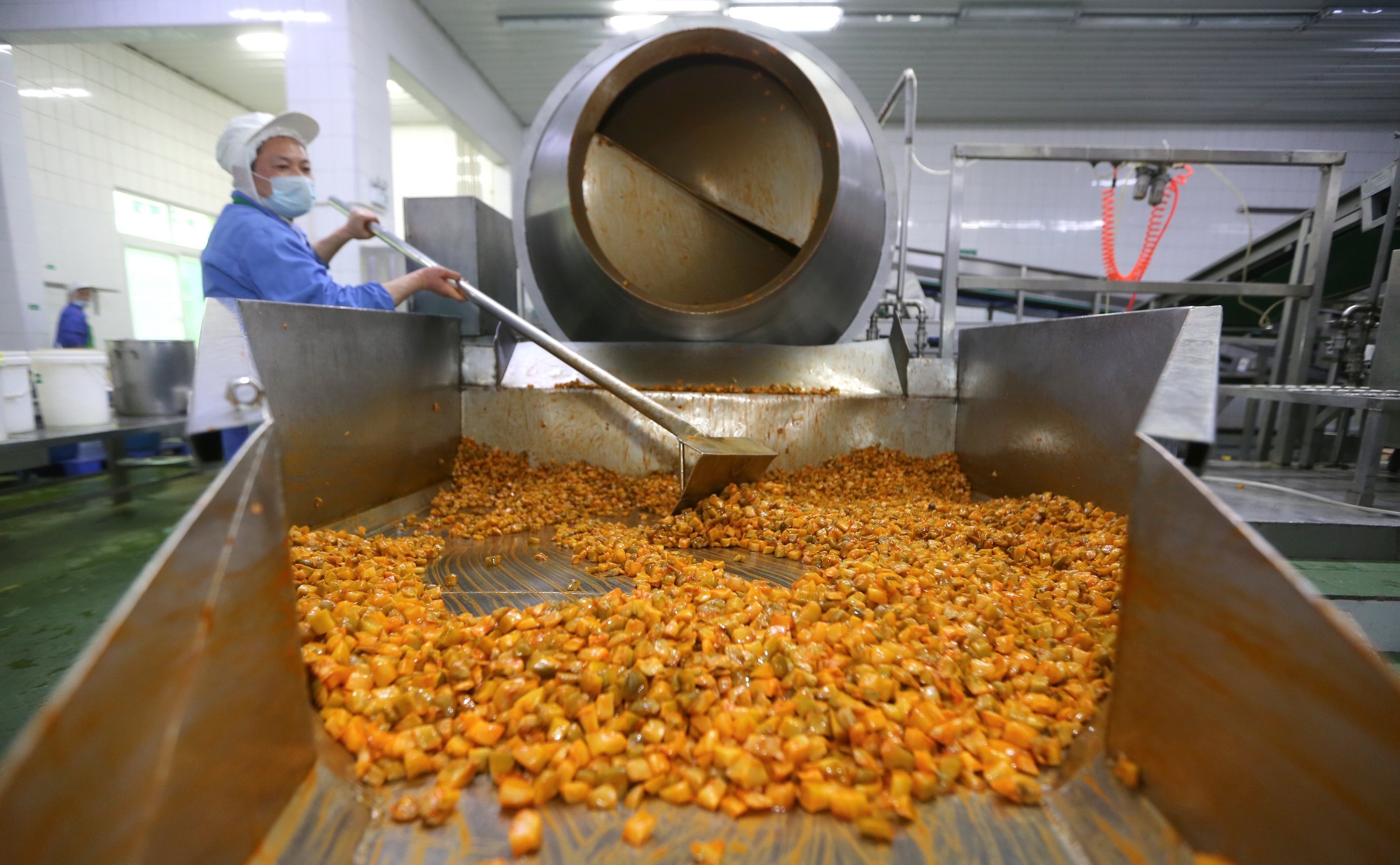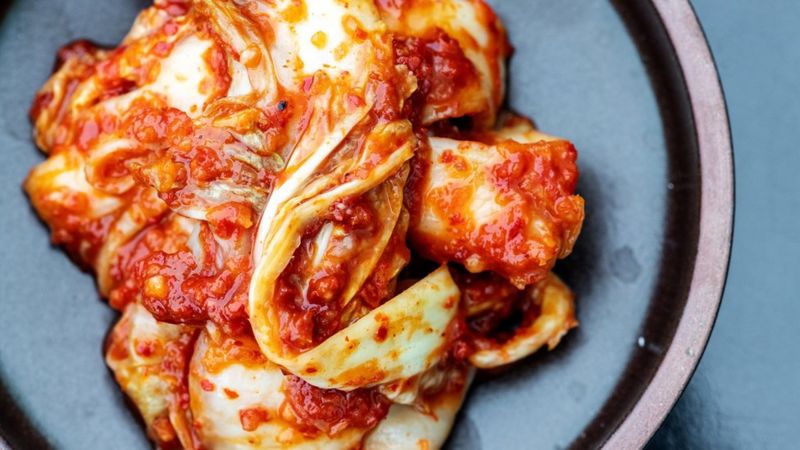South Korea has rebuffed China after false reports that it had won global certification for its production of kimchi – a hallowed dish for Koreans.
Last week global industry standards body ISO posted new regulations for the making of pao cai, a type of Chinese salted fermented vegetables.
Some Chinese media crowed that it affected Kimchi, prompting a clarification from South Korea.
It’s the latest cultural spat between the neighbours.
There are many types of kimchi, a spicy pickle dish normally made using cabbage. Kimchi is often served in China under the name pao cai, but China has its own variant of the dish which it also calls pao cai.
Earlier this month the ISO published new rules for the development, transportation and storage of pao cai. Authorities in Sichuan province, where the majority of pao cai is produced in China, had lobbied for the certification.
Although the ISO listing clearly says “this document does not apply to kimchi”, some Chinese media suggested otherwise.
The nationalist, state-run Global Times called it “an international standard for the kimchi industry led by China”.
South Korean media reports disputed the claims, which also prompted anger on social media.
South Korea’s agricultural ministry then released a statement saying international standards for kimchi were agreed by the United Nations in 2001.
“It is inappropriate to report [the pao cai certification] without differentiating kimchi from pao cai of China’s Sichuan,” it said.

Traditionally, kimchi is made by washing and salting vegetables before adding seasoning and fermented seafood and placing the product into breathable clay jars underground. The annual ritual of making it, known as Kimjang, has been listed as an Intangible Cultural Heritage by the UN cultural organisation Unesco.
Due to high demand in the country, South Korea imports large amounts of kimchi from producers in China. Meanwhile, Korean kimchi exports to China are virtually non-existent due to strict Chinese regulations on pickled goods.
The dish has served as a focal point for diplomatic clashes in recent years. The international codification of kimchi’s recipe in 2001 came after a dispute with another pickle-loving neighbour, Japan.
The spat is just the latest between Chinese and South Korean social media users this year.
Online debate was sparked weeks ago over costumes used in a Chinese period drama, Royal Feast. The controversy began after Chinese actor Xu Kai posted a picture on social media network Weibo, showing him dressed in an outfit during filming.
Several internet users pointed out that the costume resembled a traditional Korean outfit known as a hanbok. But in response, the show’s producer Yu Zheng said it was a form of feudal Chinese clothing known as a hanfu.
Earlier this year, K-Pop group BTS were also criticised in Chinese media for remarks made by one of its members about the Korean War.
During an award ceremony, Kim Nam-joon, known as RM, commented on the tragedies of the conflict and the “history of pain” shared by the US and South Korea. The comments angered some in China because they did not mention that Chinese lives were lost during the war.

